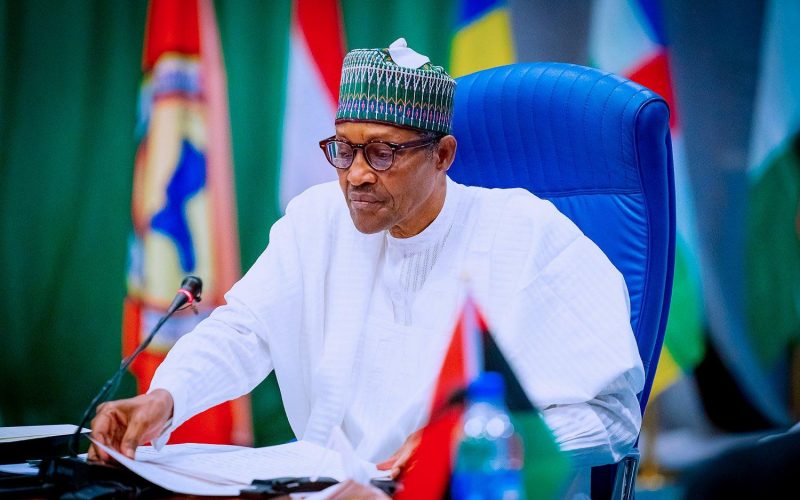President Buhari is a familiar figure in Nigeria, a household name you might say, but how much does he earn as the former leader of one of Africa’s most populous countries?
Buhari salary and net worth have been topics of interest to many Nigerians, especially as the nation grapples with even more economic challenges after his regime.
Many people want to know how much money he makes as the leader of the country. This article will look at Buhari’s income, biography, and net worth. We will also talk about how his salary affects Nigeria’s political landscape.
Table of contents
Buhari biography
| Name | Muhammadu Buhari |
| Origin | Daura, Nigeria |
| Date of birth | 17 December, 1942 |
| Age | 81 years |
| Occupation | Professional world leader; former president of Nigeria (2015–2023) |
| Family | Wives; Safinatu Yusuf (m. 1971–1988), Aisha Buhari (m. 1989). |
| Net worth | $80 Million |
| Salary | ₦102,672,007.00 |
Muhammadu Buhari is a well-known statesman in Nigeria. He served as president from 2015 to 2023. Before becoming president, he was a retired major general in the Nigerian Army. He took power from the civilian government of Shehu Shagari in a military coup.
Buhari’s rule as a military head of state is known as “Buharism.” His policies were very strict. He wanted to make the country better, but some people didn’t like the way he did it.
As president of Nigeria, Buhari faced many challenges. He wanted to fix the country’s economy, reduce corruption, and fight against extremist groups like Boko Haram.
However, Buhari’s critics say that he did not do enough to help the country. There were also problems with his government, such as human rights issues and a lack of transparency.
Despite these challenges, Buhari remains an important figure in Nigerian politics. His legacy as president will be debated for years to come.
Read: How Much is Nutritionist Salary in Nigeria? Federal, State, and Private Firms
Buhari age
Muhammadu Buhari was born on December 17, 1942, in Daura, Katsina State, in northern Nigeria. He grew up in this region and learned about the culture and customs of his people, the Hausa and Fulani.
Now, Buhari is 81 years old. He has lived through many changes in Nigeria, including the time when it was under British colonial rule and when it became independent. His experiences have shaped his views on politics and leadership.
Buhari early life
Muhammadu Buhari grew up in Daura, Katsina State, Nigeria. He was born in 1942 to a Fulani father and a mother with Hausa and Kanuri heritage. His father died when he was just four years old, so Buhari was raised by his mother.
Buhari education
Muhammadu Buhari’s educational journey began at primary schools in Daura and Mai’adua. He continued his studies at Katsina Middle School and Katsina Provincial Secondary School, where he earned his West African School Certificate.
Afterward, he attended the Nigerian Military Training School in Kaduna, where he began his military career.
Buhari’s education was foundational for his future leadership roles. He gained knowledge and experience that would shape his decisions and policies during his time as president of Nigeria.
Buhari political career
Muhammadu Buhari’s political career began in 1975 when he became military governor of the North-Eastern State. In 1983, he was elected president of Nigeria, but his rule was cut short by a military coup.
After returning to civilian life, Buhari ran for president in 2003, 2007, and 2011, but lost each time. However, in 2015, he won the election and was sworn in as president.
During his presidency, Buhari implemented the N-Power program, which was a government-funded initiative aimed at providing employment opportunities for young people.
Buhari’s presidency was also marked by some controversial moments, such as the #EndSARS protests in 2020. These protests were against police brutality and corruption in Nigeria, particularly against the Special Anti-Robbery Squad (SARS).
Despite facing criticism for his handling of the #EndSARS protests, Buhari continued to push for economic and social reforms in Nigeria. He also focused on fighting corruption and improving security in the country.
In 2023, Buhari’s tenure as president ended, and he handed over power to his successor.
How much is the president of Nigeria paid?
The President of Nigeria is paid a monthly salary of 1,171,568 Nigerian Naira. This is followed by the Vice President who earns 1,010,524 Naira, Ministers and other top government officials who earn 650,137 Naira, and Minister of States and other members of constitutional bodies who earn 628,057 Naira per month.
The President’s salary is considerably higher than that of other top government officials due to the significant responsibilities of his position. As the head of state, the President is responsible for the overall governance and development of Nigeria.
What is the severance package for the president of Nigeria?
A severance package for the President of Nigeria is an amount of money that the President receives when they leave office. This payment is usually based on the length of time they served as President and their salary while in office.
In the case of Nigeria, the President is entitled to a severance package of 300% of their annual basic salary. This means that the outgoing President will receive a large sum of money as compensation for their service to the country.
The severance package is intended to help the President adjust to civilian life after leaving office and is part of a larger scheme of benefits for former Presidents.
Buhari salary
According to mywage.ng during his time in office, President Buhari earned a salary of ₦102,672,007.00 per year. This is a large sum of money and reflects the significance of the President’s role in the country.
The salary is designed to provide the President with the resources he needs to fulfill his duties effectively, including travel, security, and other expenses related to the office. It also reflects the high value that Nigerians place on their leadership and their desire for a strong and effective government.
Also, read: 20 US Scholarships for Nigerian Students | Eligibility and How to Apply
Buari salary per month
Also, according to mywage.ng President Buhari received a monthly salary of ₦8,556,000.58 during his time in the office. This is a substantial sum of money, representing the high esteem with which the office of President is regarded in Nigeria.
The monthly salary is designed to cover the costs of running the office of the President, including expenses for transportation, security, and other necessary expenses.
The salary is also intended to provide the President with a comfortable standard of living and enable him to carry out his duties to the best of his ability.
Buhari’s salary per week
As President of Nigeria, Buhari earned a weekly salary of ₦1,974,461.67 according to mywage.ng. This is a considerable sum, reflecting the importance of the President’s role and the value that Nigerians place on their leadership.
The weekly salary is part of the larger compensation package that the President receives, which includes the annual salary, severance package, and other benefits. It helps to ensure that the President has the resources he needs to fulfill his duties and carry out his responsibilities effectively.
Buhari salary daily
The daily salary of the Nigerian President is a significant figure that reflects the importance of the office. President Buhari’s daily salary, when he was in power, at ₦394,892.33, underscores the value that Nigerians place on their leadership and the expectations they have for their President.
This amount is enough to cover the President’s day-to-day expenses, such as travel, security, and any other necessary costs. It also provides him with the resources he needs to focus on his responsibilities as the leader of the country without financial worries.
Buhari net worth
President Buhari’s net worth of $80 million reflects his years of service in government and his position as the leader of one of Africa’s largest economies. This substantial wealth is a testament to the power and influence of the presidency in Nigeria.
Buhari’s net worth includes his assets, investments, and income from various sources. He has likely accumulated this wealth through his position in the government and his previous roles as a military leader and politician.
Also, see: How To Get Luxembourg Student Visa From Nigeria | Requirements, Fees and Eligibility
Buhari honors and decorations
President Buhari’s success in the political arena has been accompanied by a string of honors and titles from both Nigeria and abroad. His notable list of national awards includes the Grand Commander of the Order of the Federal Republic, which he received in 1983, and several chieftaincy titles from different regions of Nigeria.
In recognition of his contributions to international diplomacy, Buhari has also been decorated with the Grand Collar of the Order of Independence from Equatorial Guinea, and the Order of the Republic of Serbia. These honors reflect his standing on the global stage and the respect he commands from other nations.
Along with these foreign honors, Buhari has also received numerous traditional titles in his home country. These titles, such as Enyioma I of Ebonyi and Ochioha I of Igboland, are bestowed upon individuals who have distinguished themselves through their leadership, service, or achievements.
Buhari’s accumulation of these titles is a testament to his lasting impact on Nigeria and its people. They are a recognition of his status as a respected figurehead and his dedication to the development and prosperity of his nation.
FAQs
The salary of the President of Nigeria is ₦30,000,000 (about US$ 65,143) per year.
When Muhammadu Buhari first assumed the presidency of Nigeria, he was 72 years old, making him the oldest person to ever take office.
Conclusion
To conclude, President Buhari’s salary and net worth reflect his position as a prominent figure in Nigerian politics. His dedication to his country and leadership roles have been recognized both domestically and internationally through various honors and titles. While his time in office may have had its challenges, his legacy will continue to shape the nation’s political landscape for years to come.
References
- avenuegh.com – Muhammadu Buhari networth
- icirnigeria.org – Details of Nigerian President
- punch.com – Jumbo severance package: Buhari, Osinbajo, others to get N63bn, pensioners kick
- en.wikipedia.org – Muhammadu Buhari



